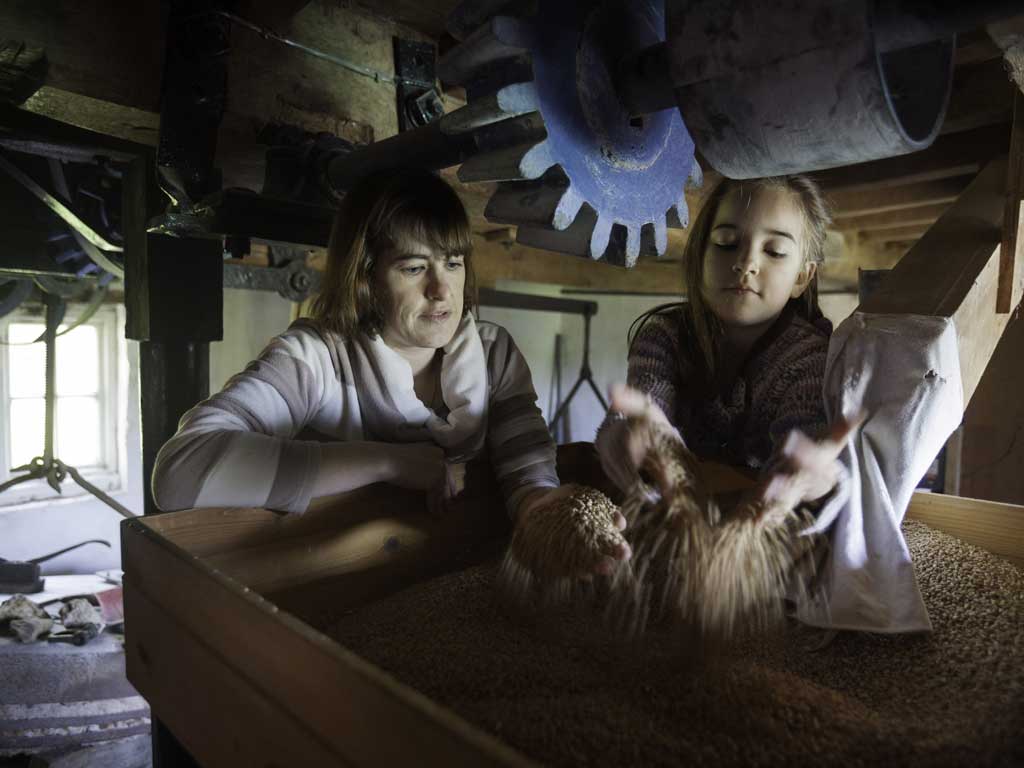Passion for artisan bread puts wind in the sails of Britain's mills
As hundreds of traditional millers throw open their doors to the public this weekend, their profession is undergoing a renaissance

Your support helps us to tell the story
From reproductive rights to climate change to Big Tech, The Independent is on the ground when the story is developing. Whether it's investigating the financials of Elon Musk's pro-Trump PAC or producing our latest documentary, 'The A Word', which shines a light on the American women fighting for reproductive rights, we know how important it is to parse out the facts from the messaging.
At such a critical moment in US history, we need reporters on the ground. Your donation allows us to keep sending journalists to speak to both sides of the story.
The Independent is trusted by Americans across the entire political spectrum. And unlike many other quality news outlets, we choose not to lock Americans out of our reporting and analysis with paywalls. We believe quality journalism should be available to everyone, paid for by those who can afford it.
Your support makes all the difference.A growing appetite for artisan bread produced by Britain's burgeoning army of small independent bakeries has set the wheels turning again in previously defunct windmills that have stood forlorn for decades.
Thanks to Britain's changing appetites, a new generation of millers is struggling to meet the demand for traditional flour. Tens of thousands of Britons will flock to visit mills this weekend, as hundreds – wind- and water-powered – open their doors to the public.
A number are being brought back into working order, such as the Grade II listed Bunbury Watermill in Cheshire, which reopened in March, after being closed for two years. And last year, Melin Talgarth Mill in Wales reopened for the first time in more than 60 years after major renovation. Moulton Windmill, in Lincolnshire, Britain's tallest windmill at 100ft high, is now in its final stages of restoration, as is Holegate Windmill in York. And today Bardwell Windmill in Suffolk is set to grind corn commercially for the first time in 100 years.
The Traditional Cornmillers Guild, which promotes artisan flour milling, has seen its membership more than double since it was set up in 1987 with 16 mills as members. It now has 35, and the guild claims more are being brought back into production in Britain than anywhere else in the world.
Although still a niche market, it is not insignificant, with some 8,000 tonnes of flour a year now being produced in a tradition stretching back more than 1,000 years.
There were around 6,000 mills in England listed in the Domesday Book in 1086. By 1931, there were just 200 working mills left. This number fell to below 10 by the 1960s, ironically a time when Camberwick Green's resident miller, "Windy", was being watched by millions of children.
But the efforts of enthusiasts helped to stop them disappearing, aided by tens of millions of pounds in Lottery grants in recent years. There are now more than 30 mills that produce enough flour to run as going concerns, along with more than 100 others that can produce flour.
Television programmes such as The Big Bread Experiment and The Great British Bake Off have helped sustain interest in locally produced flour, part of the home-baking market now worth more than £500m a year.
Jonathan Cook, chairman of the Traditional Cornmillers Guild, said: "The majority of our members, especially those selling to local artisan bakers, have seen a significant renaissance of interest in their products. And as a working miller myself, my turnover is up by about 20 per cent over the past year."
Mr Cook, who runs Swaffham Windmill in Cambridge, added: It's indicative of what we are seeing in wider society, which is about people looking for something that links them to something more profound – something with a local identity."
The trend is set to continue, according to Michael Stoate, who runs Cann Mills in Dorset: "I see no reason why this trend won't increase and that old redundant mills can be brought back to life and serve their local community once again."
Join our commenting forum
Join thought-provoking conversations, follow other Independent readers and see their replies
Comments